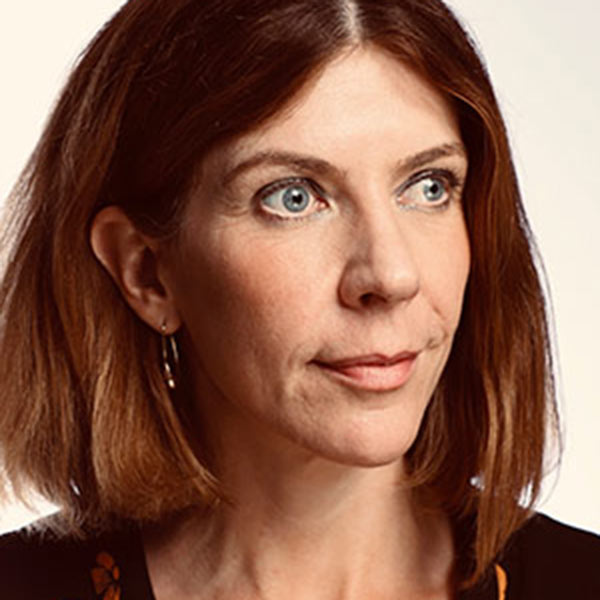
In the spring of 2017, we spoke with a number of our members and key stakeholders about sustainability management, including what is working and what isn’t. These conversations informed our report Redefining Sustainable Business: Management for a Rapidly Changing World, which presents our blueprint for creating resilient business strategies.
Terry Nelidov, managing director of the Erb Institute, shared his insights on how millennials in leadership roles will impact sustainability management, the importance of metrics and leadership support for sustainability, and the convergence of environmental and social issues.
Alison Taylor: First, please tell us about your work in sustainability at the Erb Institute.
Terry Nelidov: The Erb Institute is the University of Michigan’s business-sustainability partnership between the Ross School of Business and the School for Environment & Sustainability. We started as a dual-degree M.B.A./M.S. program back in 1996, and we have expanded over the years to be a full-fledged institute with sustainability research, teaching, and business engagement. This is all in support of our mission to create a sustainable world through the power of business—very akin to BSR’s mission, I might add!
The young professionals in our graduate M.B.A./M.S. program have traditionally been focused on key environmental issues, like climate, energy, water, and ecosystems. What we’ve seen over the past five years or so, however, has been a shift to the social side of sustainability, with growing interest in issues like supply-chain labor conditions, business and human rights, community development, and diversity and inclusion.
Taylor: What are the characteristics of the millennials you teach, and how are you translating their issue experience into practical management expertise?
Nelidov: Ross Business School just leapt into No. 7 on the list of Top 10 M.B.A. programs in the U.S.! You can imagine that Erb’s business-sustainability students are ambitious, well-prepared, and also a little impatient for change and impact (which I guess isn’t unique to ambitious young people anywhere). While some complain of a sense of entitlement in the emerging millennial workforce, we see it more as a fundamental shift in how this generation views personal passion, professional purpose, and profit more and more as a means rather than an end. Our students aren’t looking for “just a job;” they want a purpose. And they see business as the most effective way to do that.
As a university, we sit very early in the “sustainability professionals value chain,” and we’re getting a glimpse into what middle management in large companies will look like in five to 10 years. I see a definite shift coming in employees’ expectations for their companies’ social and environmental performance. Soon, these employees will start to take on leadership roles in their companies, with the responsibility and the resources to drive deep change.
The impatience we see today will over time manifest itself as an expectation for a fundamentally different role for business in society, and that change will happen not only because activists and stakeholders are pushing from the outside, but even more importantly because new leaders deep inside the company expect it of any company where they choose to work.
Taylor: What about Erb’s executive education? Are we still stuck on the business case for sustainability?
Nelidov: No, thankfully we are beyond “CSR 101” awareness raising and making the business case for “why environment and society matter.” Together with Ross Executive Education, Erb delivers executive education designed to respond to what we’re hearing from our business partners, namely “Don’t waste my time with why sustainability matters. We get it! But show us how to actually do it!” And that’s the hard part.
Taylor: That’s a huge focus for us at BSR, too. What do you see as the key success factors here?
Nelidov: First of all, this has to come from the top. There are ways to get around a lack of senior leadership commitment, but when leadership “gets” sustainability, you see rapid, deep, transformative change. Second, performance targets and measures are how ambitious goals and commitments at the top get translated to middle management. Simple targets for business units unleash innovation, even before you start to tackle building sustainability into individual performance targets.
It’s a cliché to say you “manage what you measure,” but I’ve seen over and over again that the very act of starting to measure sustainability impact is a huge motivator. We know how to measure environmental impacts, like water consumption or material waste, because we’ve been doing it for a while. We also have emerging experience in measuring impact on labor issues and employee engagement. But how do you begin to measure more social issues, like human development, economic inclusion, or business impact on water as a human right? That’s tough.
Taylor: Your point about human rights and water is so fascinating—are we seeing convergence between economic, environmental and social issues, or are we still suffering from siloed thinking here?
Nelidov: I have no doubt that economic, social, and environmental issues are converging. Water is a perfect example. It’s an operational issue, an environmental issue, a stakeholder issue, and now is being framed more and more as a basic human rights issue. Technology has enabled us to see systemic problems more clearly. We need systems thinking to develop more comprehensive responses to create a just and sustainable world through the power of business.
Let’s talk about how BSR can help you to transform your business and achieve your sustainability goals.
